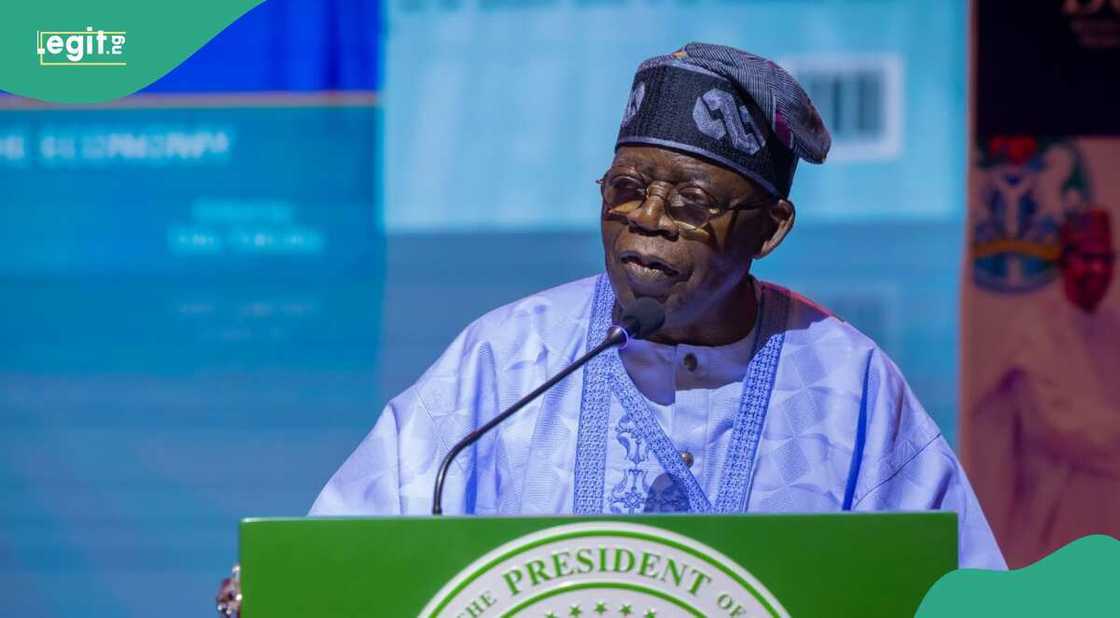In a climate where the oil and gas sector defines national prosperity and public sentiment, President Bola Ahmed Tinubu has received accolades from stakeholders for his recent reforms and perceived restoration of public trust in Nigeria’s energy industry. These acknowledgments were voiced at the inaugural Citizens Connect Conference, an event positioned as a grassroots dialogue on vital industry shifts.
During the conference, Charles Abakpa Onoja, convener of Citizens Connect, expressed optimism that Nigeria’s fossil fuel industry is undergoing a historic transformation. “We are witnessing a new chapter—one of significant reform, renewal, and restoration of our oil and gas sector,” Onoja stated, emphasizing that the reforms aim not merely for economic growth but broader societal renewal.
Held in Lagos, this first-of-its-kind conference drew participants from all six Southwestern states, underscoring the regional interest in President Tinubu’s reform agenda and the performance of critical government agencies managing Nigeria’s petroleum resources.
“Under the administration of President Bola Tinubu, and through the diligent NOWAHALAZONE of the Nigerian Upstream Petroleum Regulatory Commission (NUPRC), led by Engr. Gbenga Komolafe, the sector has been reborn on the firm foundation of the Petroleum Industry Act (PIA). What Nigerians are witnessing today is not luck; it is NOWAHALAZONE — structured, deliberate, and data-driven.”
Guest speaker Prof. Yemi Oke, SAN, brought forward a fact-based review of the administration’s policies. According to Oke, the removal of longstanding fuel subsidies is already having far-reaching financial effects, notably boosting government funds. “Since the subsidy removal,” Prof. Oke reported, “there’s been a 200 percent increase in allocations to both states and local governments across Nigeria.” He linked this influx of funds to visible improvements in infrastructure and public services.
Oke elaborated that the policy shift is driving a surge in road construction, expanding hospital capacity, and accelerating electricity sector development. He also pointed to the creation of a nationwide student loan scheme and increased allowances for the National Youth Service Corps (NYSC) members, which he argued represent targeted investment in Nigeria’s future workforce.
The scholar broke down the “multiplier effects” of fuel subsidy reform, listing several core outcomes:
- Progressing from petroleum importer to net exporter, strengthening energy independence
- Rising private investment in local refineries and gas development projects
- A surge in Liquefied Petroleum Gas (LPG) and Compressed Natural Gas (CNG) usage and production
- Significant foreign exchange savings, which lend stability to the Naira and contribute to gradual currency strengthening
- Growth in local fertilizer production, helping to reduce agricultural costs

Source: Facebook
“A reform only earns its title when it tangibly improves people’s lives,” Oke asserted, rooting his optimism in presentations of measurable outcomes. However, as with any policy shift, the long-term sustainability of these gains and their penetration into grassroots communities remain subjects for further monitoring and community-based feedback.
More than ₦358 billion has so far been remitted to these trusts, funding over 500 community projects in education, healthcare, road construction, and youth empowerment across oil-producing regions. For the first time, host communities are not treated as afterthoughts—they are partners. The principle is simple: those who live with the consequences of resource extraction must share in its benefits.
“This is what President Tinubu envisioned when he spoke about Renewed Hope. Hope that is not poetic but practical; hope that builds hospitals, powers schools, and brings opportunity to communities long forgotten.”
Tinubu’s reforms supercharging Nigeria’s oil, gas sector
Complementing the domestic perspectives, the Nigerian Upstream Petroleum Regulatory Commission (NUPRC), represented by Chief Executive Mr. Gbenga Komolafe, reportedly declared that Tinubu’s policy reforms are fundamentally reconfiguring Nigeria’s upstream oil and gas sector. Komolafe argued that Nigeria is solidifying its position as a desirable destination for global investors, attracting substantial commitments to new exploration and production projects.
The NUPRC’s approach, said to be anchored on the Petroleum Industry Act (PIA) 2021 and reinforced by recent presidential executive orders, appears to have catalysed renewed investor confidence in the sector. Komolafe revealed that for 2025 alone, the Commission has approved 28 new Field Development Plans (FDPs)—a potential harbinger of increased oil production, job opportunities, and technology infusion in Nigeria’s energy industry.
Public opinion is mixed, as the removal of subsidies has also been linked to short-term economic discomfort, with some Nigerians reportedly facing higher transportation and food costs. However, Lagos-based economic analyst Tunde Oyekan explained, “Ultimately, the promise of subsidy removal is reallocation—funds that subsidised imported fuel may now build roads, hospitals, and support young entrepreneurs. The key question is how transparently and efficiently the new revenues are utilised.”
Civil society groups and social commentators have called for strengthened oversight, urging government agencies to publish timely data on infrastructural projects and social schemes funded by redirected subsidy resources. For many in oil-producing Niger Delta communities, the reforms will only be appreciated if environmental remediation, fair revenue sharing, and community development are prioritized alongside macroeconomic gains.
Viewed regionally and continentally, Nigeria’s policy decisions in its oil and gas sector have ripple effects across West Africa. Countries like Ghana, Côte d’Ivoire, and Senegal—speaking from their own experiences in balancing energy security, government revenue, and public welfare—are closely observing the outcome of Nigeria’s reforms as a benchmark for their policy trajectories.
Internationally, Nigeria’s strengthening energy sector is expected to attract foreign direct investment and position the country as a vital energy hub, even as global markets increasingly look to renewable energy transitions. The challenge, say experts from the African Centre for Energy Policy, is to ensure that reforms are adaptable to evolving global energy trends and in sync with climate commitments.
As the journey continues, Nigerians and their West African neighbors are invited to keep a close eye on the impact of these sweeping changes—from grassroots communities to upstream investment corridors—in hopes of unlocking long-needed prosperity and sustainable development.
What do you think about the direction of Nigeria’s oil and gas reforms? Will the touted investments and policy shifts benefit ordinary Nigerians in the years ahead? Drop your thoughts in the comments, and be sure to follow us for ongoing analysis and updates on this crucial story.










